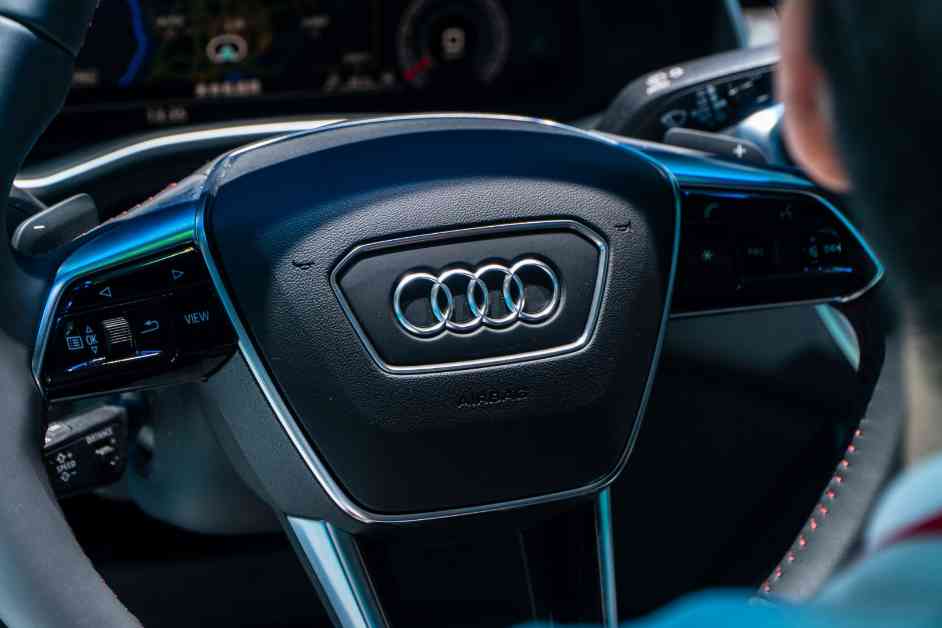Audi recently made a significant announcement at CES Asia 2019 in Shanghai, China on June 11, 2019. The luxury car manufacturer revealed that its upcoming A5 sedan and the all-electric Q6 e-tron crossover will be equipped with Huawei’s advanced driver assistance system (ADAS). This technology will enable the vehicles to autonomously change lanes and overtake in Chinese cities, marking a major step forward in Audi’s collaboration with Huawei.
The collaboration between Audi and Huawei has been ongoing for six years, with the companies focusing on developing a level 4 autonomous driving system. This system aims to take complete control of a vehicle without human intervention in Chinese urban traffic environments. The latest integration of Huawei’s ADAS in the A5 and Q6 e-tron models represents a tangible result of this long-standing partnership.
The A5 sedan, Audi’s first model to utilize the Premium Platform Combustion (PPC) architecture, is expected to debut in China at the Guangzhou Auto Show in November. This new sedan, replacing the A4 model in Audi’s lineup, will incorporate Huawei components such as electronic control units. Additionally, the vehicle is set to be manufactured by Audi and FAW Group, one of its Chinese partners, emphasizing the collaborative efforts between international and local entities in the automotive industry.
Furthermore, there is speculation that the Q6 e-tron, Audi’s first car to utilize Volkswagen’s advanced premium platform electric (PPE) platform, will also feature Huawei’s ADAS. Audi’s strategic partnerships with companies like Huawei and Momenta, a Chinese self-driving car startup, signify the brand’s commitment to integrating cutting-edge technologies into its vehicles.
In the context of the evolving automotive landscape in China, Audi’s decision to incorporate Huawei’s ADAS in its upcoming models reflects a broader trend in the industry. Toyota, for instance, has reportedly agreed to adopt Huawei’s autonomous driving stack for its electric vehicles in China, highlighting the increasing demand for intelligent driving functionalities. As Chinese car manufacturers continue to expand their collaborations with tech giants like Huawei, the integration of advanced technologies in vehicles is becoming more prevalent.
Huawei’s growing presence in the automotive sector is driven by the demand for intelligent driving functionalities in the world’s largest auto market. The company’s Advanced Driving System (ADS) has been praised for offering Chinese users a high level of safety in autonomous driving experiences. This competitive advantage positions Huawei as a key player in the development of autonomous driving technologies, potentially rivaling established players like Tesla.
As Audi navigates the competitive landscape in China, the brand is implementing strategic measures to maintain its market share amidst rising competition from domestic rivals like Li Auto and NIO. The company’s focus on acquiring EV technologies from partners like SAIC and redesigning its logo for future vehicles underscores Audi’s commitment to innovation and adaptation in the rapidly changing automotive market.
Overall, Audi’s collaboration with Huawei on integrating advanced driver assistance systems in its new models signifies a significant milestone in the evolution of autonomous driving technologies. By leveraging the expertise of tech giants like Huawei and fostering partnerships with local manufacturers, Audi is poised to deliver cutting-edge vehicles that meet the evolving needs of Chinese consumers. As the automotive industry continues to embrace autonomous technologies, Audi’s strategic initiatives underscore the brand’s commitment to innovation and technological advancement in the competitive Chinese market.

















